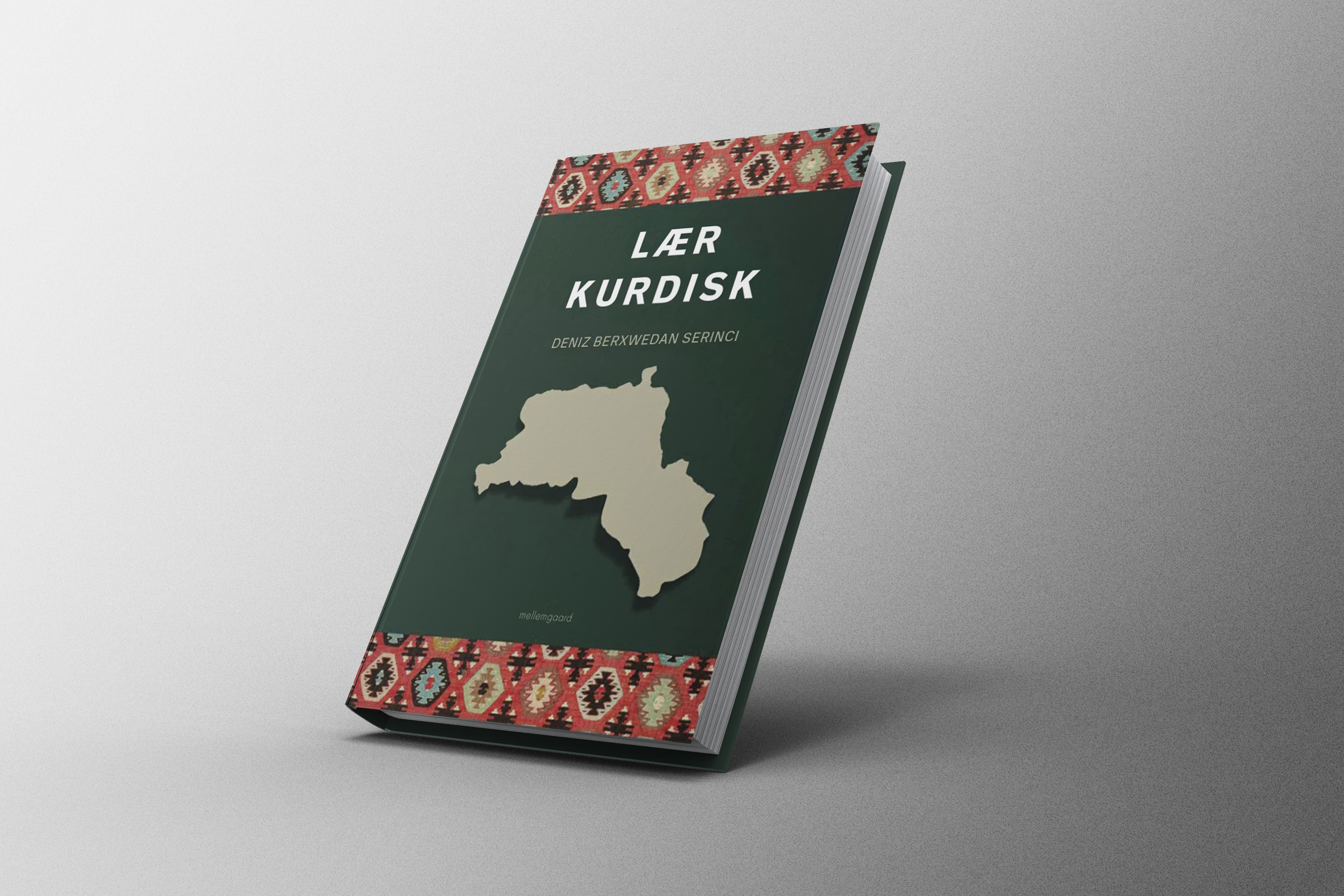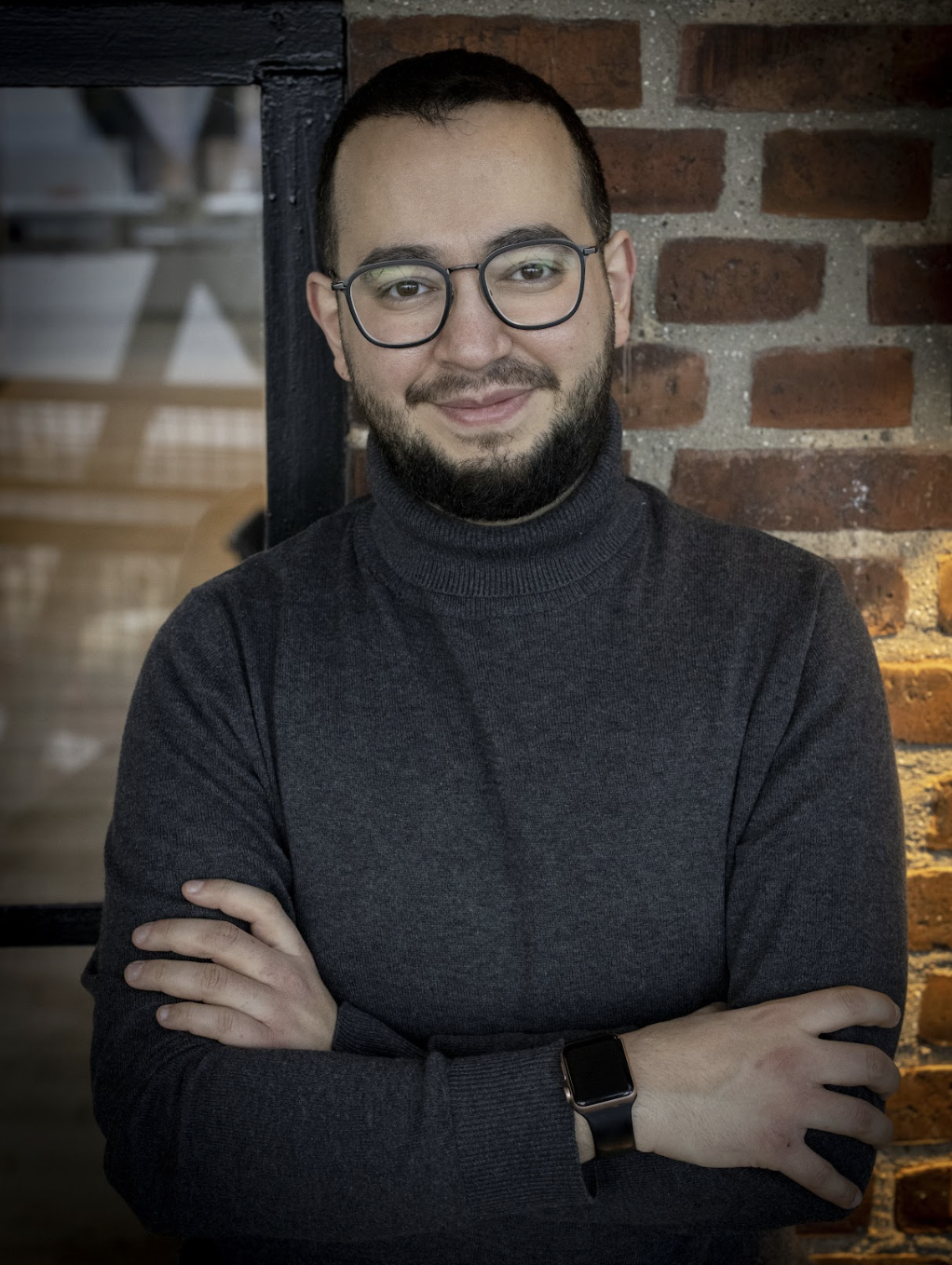The first Kurdish language learning book in Denmark, Learn Kurdish, was published by Kurdish journalist Deniz Berxwedan Serinci on March 18. It is designed for both Kurdish refugees and immigrants in Denmark, as well as non-Kurds interested in learning the language.
Serinci’s parents are originally from Corum in northern Turkiye, and he was born in Denmark. His family came to Denmark in 1970. Serinci is regularly cited as an expert source in the Danish media on the Kurds.
“I was sitting with a Kurdish friend from Konya in Copenhagen. We were talking about Kurdish dictionaries in Denmark and then it occurred to me that there was no Kurdish language learning book here,” he told Kurdistan Chronicle.
“The Kurds are one of the largest minorities in Denmark and have also lived here for a long time. That is why it is time for a learning textbook for them. In addition, many Kurds do not know their language, so I wanted to help them learn it.”
Around 25,000 to 30,000 Kurds live in Denmark, and during the last elections on November 1, 2022, there were 12 Danish-Kurdish candidates.
“The dialect in the book is Kurmanci, which is spoken by most Kurds in Kurdistan and in Denmark. Most Kurds in Denmark are from Konya in central Turkiye. Therefore, I have also added local words from the Konya dialect, known as ‘Anatolian Kurdish’. I have now handed the book over to a close friend who will translate it into the Sorani dialect,” he added.
The book includes illustrations, dialogues, and Kurdish grammar overviews. Dialogues start off simple and gradually become more complex, covering topics like colors, family, food, and electronics. Kurdish words are provided with Danish translations.

A clear need
Like many other Kurds from Northern Kurdistan (southeastern Turkiye), Serinci did not know a word of Kurdish until 15 years ago. “I actually learned Kurdish by myself, without going to a course or anything. I learned it with the help of music that I found on cassette tapes and CDs. While my friends downloaded Kurdish music online, I would go to a Kurdish greengrocer in Copenhagen and buy Kurdish cassette tapes or CDs to get the lyric covers as well.
“That way I could read the lyrics and, over time, understand the grammar of the Kurdish language. The singer Sivan Perwer made a huge impression on me. But it wasn’t enough to read the lyrics. If you’re going to learn a language, you also have to practice it – that is, speak it. I made friends from Urmia in Eastern Kurdistan (northwestern Iran) who had just come to Denmark.
“I ended up spending a lot of time with them. At the time, those men didn’t know Danish, and I couldn’t speak Kurdish. So, we had to learn each other’s languages. That’s how I learned Kurdish. Only through practice can you truly learn a language.”
Serinci has also been teaching Kurdish in the Danish capital of Copenhagen since the summer of 2023. “I opened Kurdish schools in Copenhagen and Aarhus (Denmark’s second-largest city) in 2023. We offer classes in both Kurmanci and Sorani. There are approximately 200 registered pupils. Of these, around 60 people usually attend our Kurdish school in Copenhagen every Sunday.”

The author also stressed that there was a need for a Kurdish language book since Kurds in Denmark are unwilling to travel several hours on their only day off to send their children to Kurdish school.
“Sometimes, it is not their preferred dialect that is taught. In addition, there are often students at different levels in Kurdish classes: some who know a little Kurdish and others none at all. Students range from five to 60 years old.
“Are there enough Kurdish teachers who have the necessary pedagogical training?” Serinci asked rhetorically. “Not at all. For these and other reasons, very few Kurds attend Kurdish classes in person. Even those who do, often drop out quickly. So I thought: if students won’t come to Kurdish school, Kurdish school must come to them – through this book.”
Serinci spent about approximately one year writing the book. “It may sound fast to some, but I am used to writing books. This is my 15th book in 12 years. However, I spent over 10 years learning Kurdish. The book is the result of that journey.
“Four states have suppressed or are suppressing our language. That is why we must keep speaking and learning it. Our language defines our existence. Without it, we will disappear.”

